How often to water eggplants: instructions for beginner gardeners
Eggplant is a capricious vegetable crop that requires timely irrigation. The roots are weak, so it is difficult for them to transfer moisture to the shoots. In case of insufficient moisture, the flowers and ovaries fall off. Therefore, many inexperienced vegetable growers cannot get a good harvest.
How often to water the eggplants, what characteristics the water should have and what mistakes gardeners make, we will understand the article.
The content of the article
Watering frequency
Eggplant is a demanding and moisture-loving vegetable cropthat needs regular irrigation. First of all, it should be borne in mind that moisture depends on climatic conditions and the place where the culture grows.
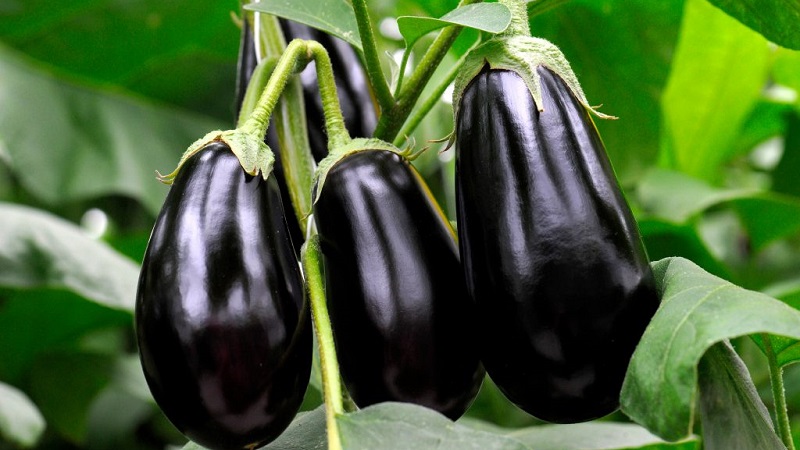
Frequency and abundance of irrigation
If the weather is hot outside, then the plants are watered once every 3-5 days.... On cloudy, warm days, vegetables are watered once a week. In rainy weather, moisten the soil only when necessary.
For 1 sq. m, 10 liters of water will be enough, or 1.5-2 liters of water are used for each adult plant.
It can be useful:
What are the diseases of eggplant in the greenhouse and how to deal with them
Why eggplants do not turn blue, but turn green and how to prevent it
What is the danger of a spider mite on eggplant and how to deal with it
Watering types
Eggplants are watered in two ways: manual and drip.
The manual method is suitable when the area of the site is small... Available means are used (watering can or hose). Irrigation with the help of a watering can make the necessary fertilizing. Hose watering covers a large area. The water pressure should not be strong, otherwise the leaves of the plant will be damaged.
Important! Use special nozzles to disperse water. Direct the flow to the root zone of the plant. Water should not come into contact with the leaves.
The drip method requires financial investments... The gardener will have to purchase special equipment - hoses with holes. Thanks to them, water flows directly to the roots of the plant with the same frequency and volume.
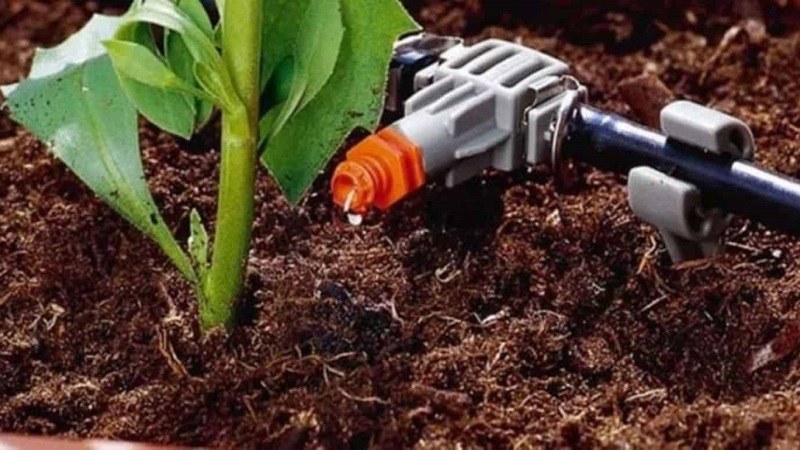
Criteria on which watering depends
The irrigation frequency is selected individually. It depends on weather conditions, plant development stage and soil condition.
In the first stages, young seedlings are moistened once a week in the evening. When bushes appear, watering is reduced, and with the beginning of the appearance of fruits, the frequency of watering is again increased.
Reference. Depending on the stage of the growing season, the volume of water does not change, the frequency of irrigation changes. With an excess of watering, the roots and fruits of eggplants will begin to rot, with insufficient irrigation, the fruits will be less than the norm.
Watering eggplants in the greenhouse and outdoors
Watering eggplant varies depending on where the vegetables are grown - Indoors or in a garden bed.
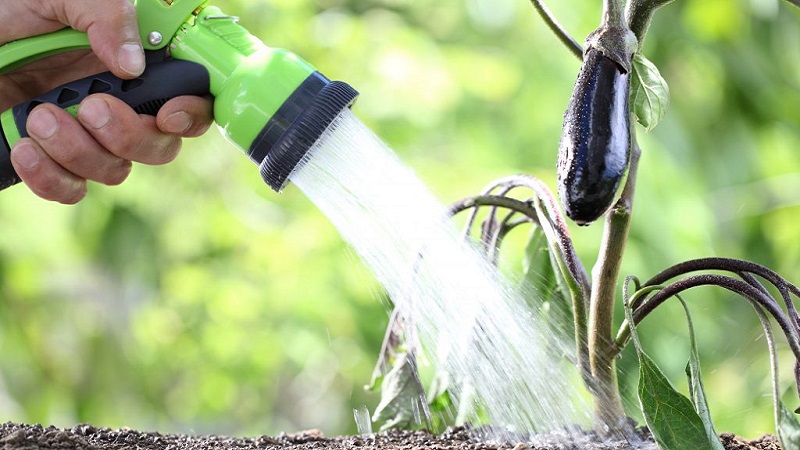
In the greenhouse
Eggplant best grown in a polycarbonate greenhouse... It is transparent, thermoregulated, and protects the fruit from wind and rain.
The temperature regime in the greenhouse should be + 28-30 ° С... This will help the plant grow quickly. At low temperatures, the culture stops developing.
Just the seedlings planted in the ground are watered once a week... When the plant begins to bear fruit, the watering frequency is doubled.
Features. Water the eggplant with a watering can or drip.
In the open field
Eggplant is a light-loving plant, therefore, before planting, you should choose a sunny place with moist and nutrient-rich soil. Water the seedlings immediately after planting watering can. For 1 sq. m requires 10-12 liters of water.
Before the development of ovaries eggplant is watered once a week. For 1 sq. m, 12-35 liters of water are used, depending on the temperature. The higher the temperature, the more watering should be.
During fruiting irrigation activities are carried out every two weeks. The volume of water is increased by 1.5 times.
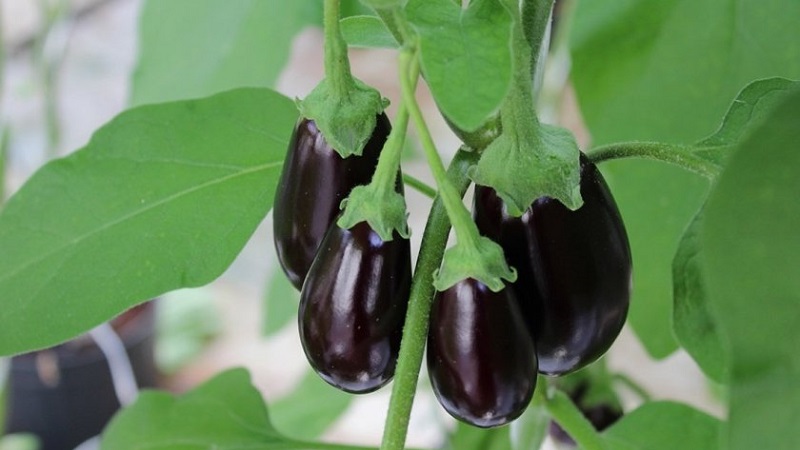
How to properly water plants
Eggplant follows pour warm water in the sun... The water is poured into large barrels where it is heated to the optimum temperature throughout the day. Watering is carried out in the morning.
Water requirements
The water temperature should be + 25-27 ° С... It is best to irrigate vegetables with melt or rainwater. Tap water is suitable for irrigation after it has settled for a day, and chlorine has disappeared.
Eggplants should not be watered with cold water. Low temperatures will provoke diseases in plants, and immunity will weaken.
Take a note:
How easy and very tasty it is to prepare eggplants for the winter
Features of watering in different periods of the growing season
At each stage of the growing season, eggplants need a different frequency and abundance of watering.... It is important not to overdo it here. Due to overflow, the plant can get sick and die.
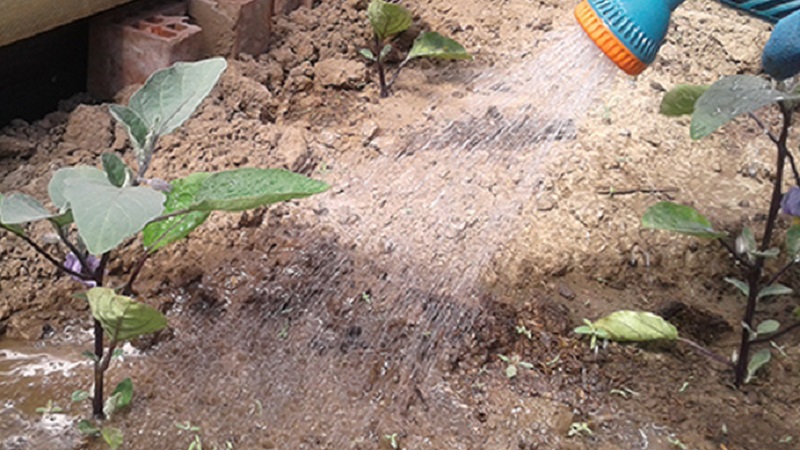
During transplanting
Before planting seedlings, the holes are watered abundantly, after that, it is required to irrigate the vegetable crop only after five days. Until this time, the plants have enough water.
Eggplants are watered in the daytime, between the rows, only at the root - the leaves should not get wet. The water pressure should be low. With a strong pressure, the stem will be damaged, which will lead to a decrease in yield.
At this stage watering the eggplant once a week is enough... Under each bush - 3-4 liters of water.
During flowering
During flowering plant abundant watering is necessary... Lack of moisture leads to shedding of ovaries and flowers.
At this time, eggplants watered twice a week... 4-5 liters of water are poured under each bush. To improve the number of ovaries, the plant is sprayed with boric solution.
During fruiting
During fruiting, eggplant irrigate once a week... For each bush, 4-5 liters of water are consumed.
Important! With a strong waterlogging of the soil, the plant may begin to rot.
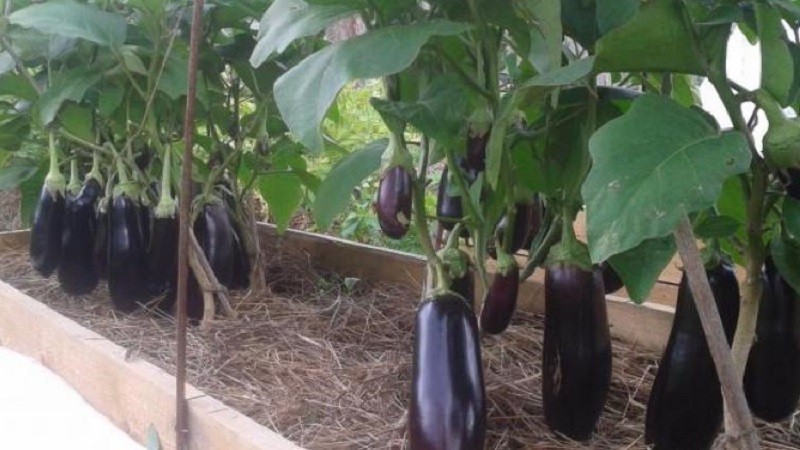
Watering with dressings
Watering with dressings will help the future plant to get such essential nutrientsin particular calcium, potassium, nitrogen, phosphorus, iron, manganese and boron.
Top dressing is carried out no more than three times per season... It is used when the vegetable crop does not develop well: it has underdeveloped roots, pale leaves and a thin stem. The first feeding is carried out two weeks after transplanting.
Types of such dressings:
- Ammonia... Three tablespoons of ammonia are dissolved in 10 liters of water. The solution is poured under the root of the plant.
- Boric acid... Dissolve 10 g of the substance in 1 liter of boiling water. Another 9 L of water is added. The solution is sprayed on the leaves. Top dressing is carried out to improve the ovaries.
- Potassium nitrate... Used to strengthen eggplant leaves or in case of wilting. In 10 liters of water, 30 g of potassium nitrate and 10 g of superphosphate are diluted. The solution is poured over the eggplant at the root.
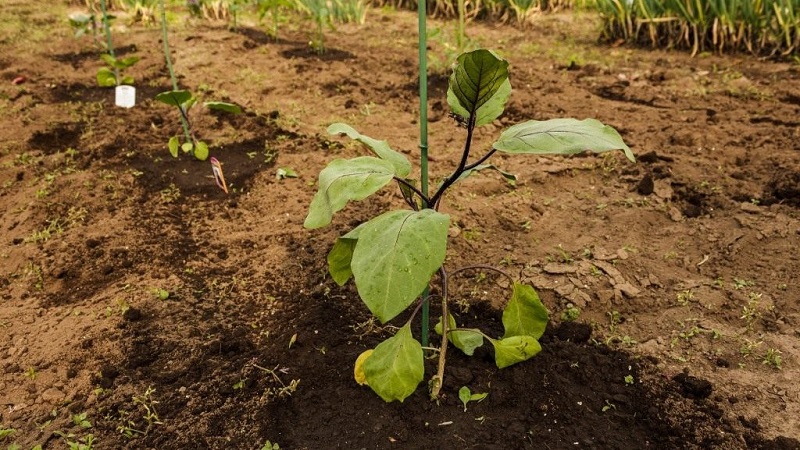
Useful tips from experienced summer residents
Experienced vegetable growers recommend adhering to such rules:
- When choosing a place to plant, keep in mind that this is a light-loving plant that needs moist soil. It grows best in low acidity soil. The soil should be rich in potassium.
- In order for the plant to receive calcium and potassium, it is watered with water infused with eggshells.
- Sprinkler irrigation is not suitable for irrigating eggplants. Water hits the leaves, the plant begins to ache. Watering is carried out exactly at the root.It is better to use drip irrigation.
- You can water the vegetable crop in the grooves, which are prepared in advance next to the planted plants.
- To prevent rotting, eggplants are watered with a weak solution of potassium permanganate no more than once a week.
- The following technique has a positive effect on the development of the plant: a small groove is dug around each bush. Fertilizers are poured into it, poured with water and buried again.
Conclusion
Eggplant is a moisture-loving vegetable crop that needs timely watering. Manual and drip methods are used more often. Eggplant is not watered with a strong jet of water - it erodes the soil and damages the stem.
For vegetables, only warm, settled water is used. Watering frequency depends on the growing season of the plant. After planting and during fruiting, vegetables are watered once every seven days, during flowering - twice a week. Do not forget about top dressing - first of all, eggplants need nitrogen, phosphorus and potassium.